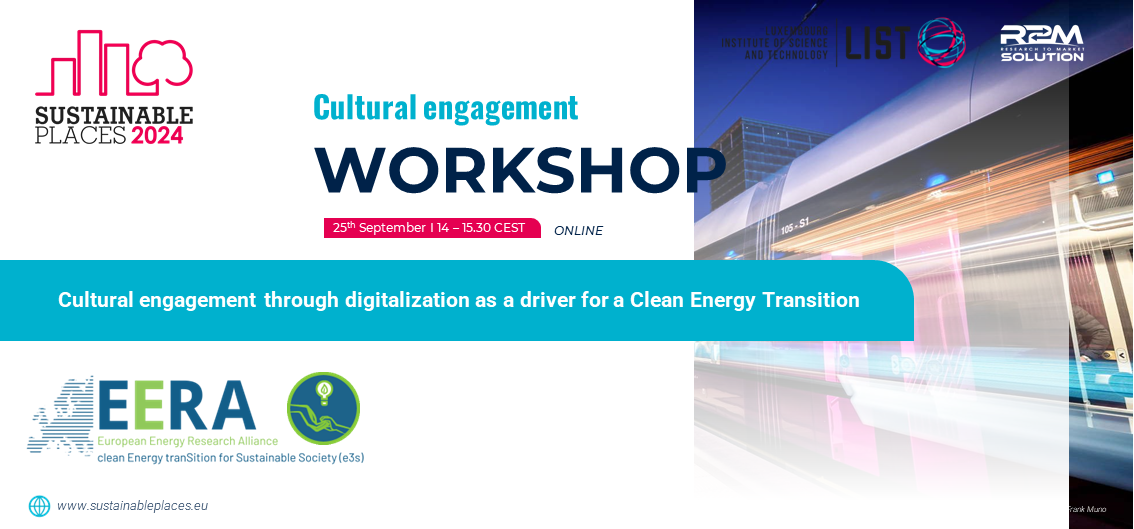
JP e3s will organize a workshop titled "Cultural engagement through digitalisation as a driver for a Clean Energy Transition" that will take place online on 25th September from 14 to 15.30 (CEST) during the Sustainable Places 2024 Conference.
What is it about?
The role of Culture (arts, heritage, cultural and creative industries) in the Action for Climate Empowerment is now widely recognised by international organisations and governments. Indeed, climate change is perceived as an urgent issue by 77% of Europeans (Eurobarometer 2023), and cultural products, such as performing and visual arts, architecture and museum initiatives are emerging as effective tools to address climate and energy issues, promoting resilience, skills creation and pro-environmental behavioral changes, including energy saving behaviors.
Cultural policies can thus be effective in addressing the challenge of promoting changes in behaviours and practice but are far from being mainstreamed in energy and climate policies. Despite the growing number of events and advocacy networks focusing on the topic, there is still little research and evidence on the impact of cultural participation on real behavioral change. The role of culture in engaging citizens in the energy transition is gaining relevance in policy agendas. Indeed, the EU is pursuing social innovation and citizen participation in both its culture & research agendas. The assumption is that cultural products could ensure wider and more inclusive citizen engagement compared to typical policy outreach. They are also recognised as triggering a sense of belonging, mobilising local action and supporting the promotion of hybrid spaces, such as living labs and creative hubs in innovative and effective ways.
Digitisation (including IoT and AI) opens up unique opportunities to tailor cultural consumption experiences, thus conveying ad hoc messages and content through the gentle push of Culture, i,e. framing these experiences into the tradition of nudging strategies. In addition, Digitalisation of cultural products and services (i.e. in video-games, heritage digital twins, smart-city platforms and Labs) is now a primary tool for gathering information from audiences that can be processed to evaluate the impact of Culture-Science Energy R&I collaborations. The application of behavioral science and artificial intelligence to the vast digital data available from citizens can help to crowdsource public perceptions & behaviours.
The EERA Joint Programme e3s has launched a deep and comprehensive exploration of the maturity of the topic through the R&I activities of its two subgroups on Behaviour Change for Energy Demand Reduction and Governance for a Just Transition.
Event objectives
The workshop will present the main findings of this research:
- Experiences of EERA members with and within the cultural & creative sector as a catalyst for citizens engagement in sustainable energy projects & policies (with a specific focus on digitalisation and on methods used to assess the effectiveness and impact of these experiences on sustainability pathways);
- A review of policies & governance models that enable culture (and related digitalisation) to be mainstreamed into sustainable energy & climate plans & strategic urban planning.